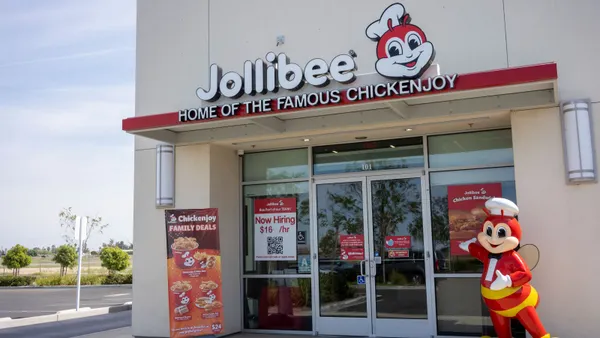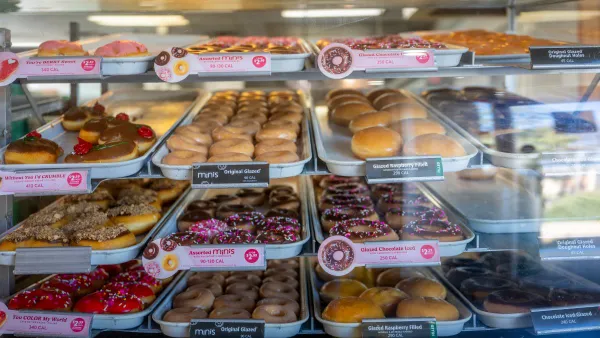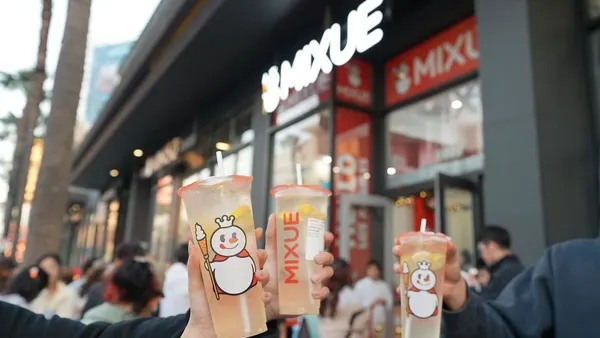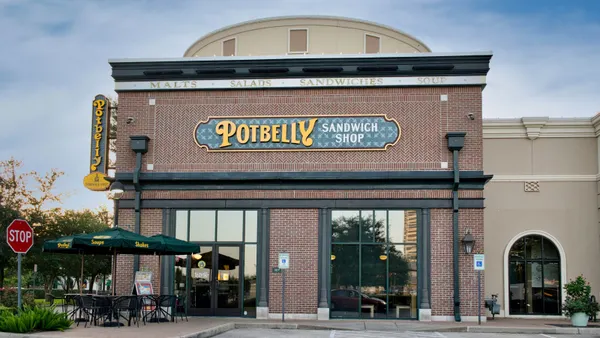Dive Brief:
- Restaurant Brands International, which owns Burger King, Popeyes and Tim Hortons, is advancing cash payments and rebates to restaurant owners, according to an open letter from CEO José Cil. In North America, that will represent about $70 million in cash advances. The company is looking for additional payments that can be advanced now, he said.
- For about 3,700 eligible locations where it has property control at Tim Hortons in Canada and Burger King in the U.S. and Canada, RBI has temporarily changed its rent structure so that it’s 100% variable, and has deferred rent payments for up to 45 days, in order to free up tens of millions of dollars in working capital across its systems. RBI’s leaders are also contacting all its landlords in North America to seek additional assistance. Further, all remodeling and equipment upgrades are now paused to free up cash for franchisees.
- The company has drawn down its full $1 billion revolving credit facility, which adds to RBI’s balance sheet that was about $1.5 billion in cash at the end of 2019, Cil said in a letter, adding this $2.5 billion cash on hand will provide flexibility to “confidently support our restaurant owners and employees throughout this uncertain time.”
Dive Insight:
Like other major restaurant companies that have submitted COVID-19 updates in the past week — Yum Brands, McDonald’s and Wendy’s among them — the future looks bleak for RBI. In a regulatory filing, the company said it can’t estimate the duration or negative financial impact of the pandemic, but expects it could be material.
Such a “material” negative financial will directly affect the small business owners in the company’s nearly 100% franchised system, which is why those owners are a priority for RBI during this downturn. As Cil mentioned in his letter, “We are one of the largest franchisors of restaurant brands in the world and we take our responsibility to ensure the financial health of our restaurant owners very seriously, particularly during difficult times.”
Restaurant owners will have access to these sources of liquidity to sustain their business, Cil said. It's a necessary investment — the National Restaurant Association estimates that about 3% of restaurants have already closed permanently, with another 11% anticipating closure within the next month.
And, although quick-service restaurants like those in RBI’s portfolio have been able to shift their operations to off-premise more easily than their casual/fine dining counterparts, that doesn’t mean it’s been smooth sailing. According to The NPD Group’s CREST Performance Alterts, customer transactions at quick-service restaurants, decreased by 34% in the week ending March 22 compared to year ago.
While RBI joins the likes of many other brands like Yum and Wendy's that been delayed remodeling obligations, RBI seems to be the first to establish “Restaurant Owner Liquidity Support Teams” to work one-on-one with its franchisees on its efforts, as well as how to engage with lenders to adjust debt service schedules. It has established teams planning to expedite access to recently announced emergency stimulus programs in the U.S. and Canda, to provide support to restaurant owners, most of which are small business owners.
RBI’s efforts illustrate a clear picture of the haves and the have-nots in the restaurant industry. As an increasing number of restaurants shut their doors, the big, well-capitalized companies that are able to draw down from massive credit lines to keep their businesses afloat through the downturn could very well have an advantage in the long term. For RBI specifically, such a thorough effort to ensure its franchisees are taken care of could also re-establish goodwill among a few disgruntled operators.










